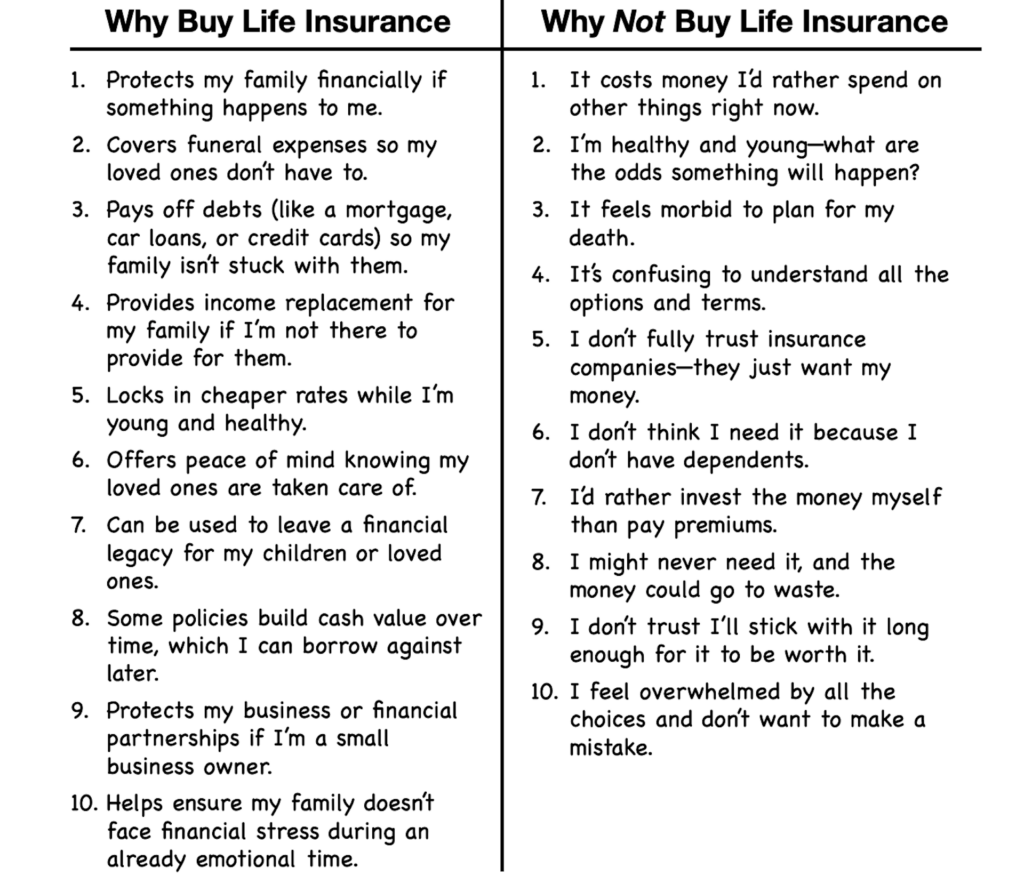Should I Buy Life Insurance Now, by Tom Monson.
For many people, deciding whether or not to buy or when to buy life insurance can cause a mental tug-a-war. I’m the same way. I just purchased another policy because the cost of everything has gone up at least 20% over the last five years.
How I answered the question: “Should I Buy Life Insurance Now?”
Ben Franklin, known for his wisdom, used a simple pros and cons method to make decisions. He’d list advantages on one side and disadvantages on the other, striking out equal points to weigh the most important factors. You can use this method to decide whether buying life insurance right now is right for you.
Below is the Pro and Con chart I created to help me decide:

We’re here for you. Just complete the form below for a quote and additional information:
Still Not Sure?
Here’s a story that may help:
John was a hardworking man who prided himself on providing for his family. He believed in saving and investing but never saw the point in life insurance. “Why pay for something I might never need?” he’d say. To him, it felt like a gamble, and he preferred to handle his money himself.
One day, John’s friend Mike shared a story. Mike’s cousin had unexpectedly passed away, leaving behind a wife and two small children. With no life insurance, the family struggled to pay for the funeral, let alone keep up with bills and the mortgage. Mike explained how a simple life insurance policy could have replaced his cousin’s income and eased the family’s burden during an already difficult time.
John began to think differently. He realized life insurance wasn’t just about him—it was about protecting his family from financial hardship if he wasn’t there to support them. It wasn’t a gamble; it was a safety net. John sat down, made a pros and cons list (just like Ben Franklin might have), and decided the peace of mind was worth it.
Life insurance isn’t for you—it’s for the people who depend on you. It’s a way to ensure your loved ones are cared for, no matter what.
Ethos
Ethos
Ethos


